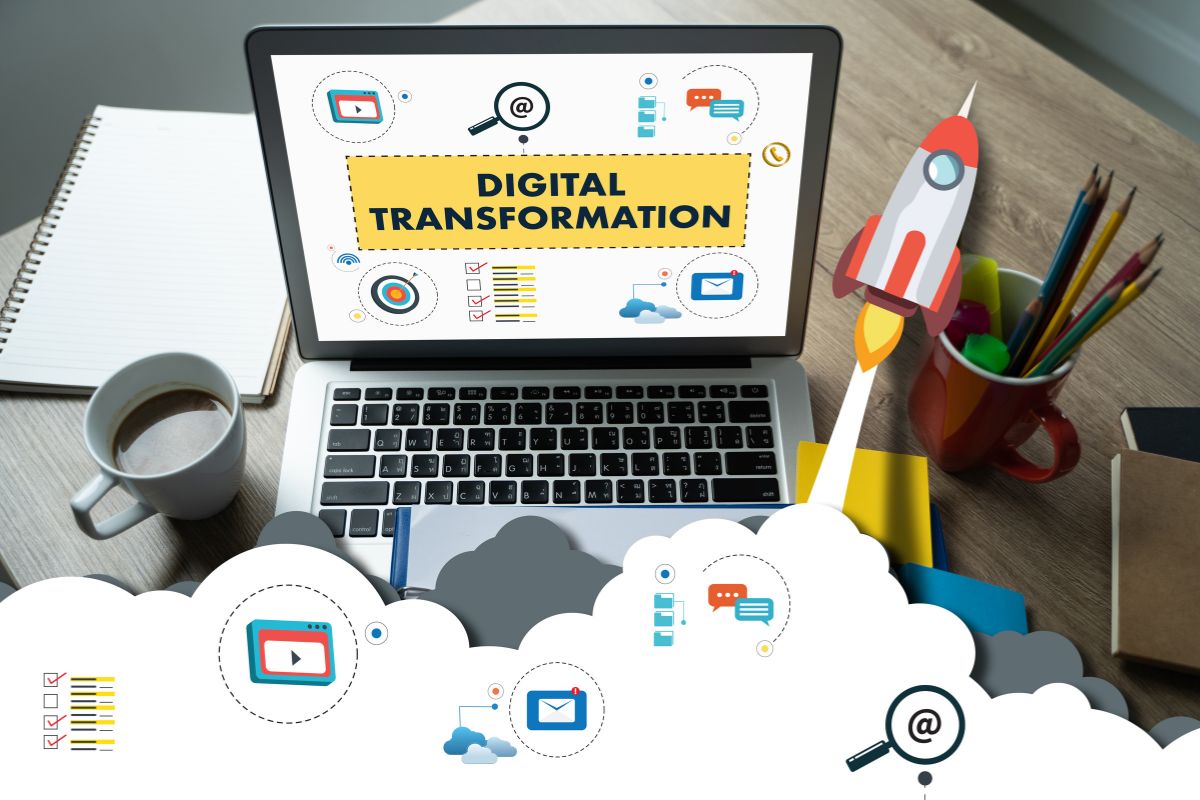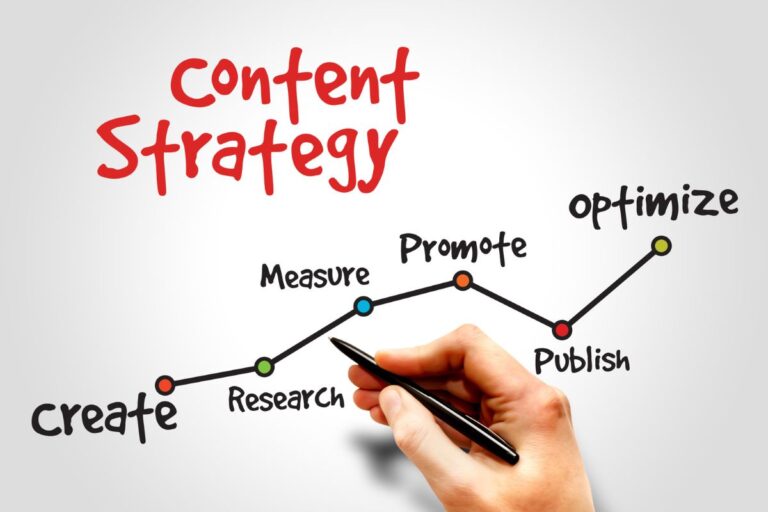Hire Digital Transformation Consultants for NGOs & Government Agencies
Most NGOs and government agencies struggle with legacy systems that drain resources and delay mission-critical outcomes. The real challenge isn’t technology — it’s the lack of a clear roadmap, expert implementation, and cross-functional alignment. That’s why organizations that thrive hire digital transformation consultants to lead strategy, optimize processes, and drive measurable results. This guide outlines what it takes to implement transformation that actually sticks.
What Is Digital Transformation in the NGO and Public Sector?
Digital transformation in the nonprofit and public sectors refers to the strategic adoption of digital technologies, systems, and processes to improve service delivery, enhance operational efficiency, and maximize stakeholder impact. It’s not just about going paperless or adopting new software — it’s a complete rethinking of how NGOs and government agencies function, make decisions, deliver services, and scale their missions in a digital-first world.
Organizations today face complex challenges: growing citizen expectations, limited budgets, outdated infrastructure, and increasing demand for transparency. Hiring digital transformation consultants helps these institutions craft tailored strategies that modernize service delivery while preserving mission integrity.
At SMEPAL Consultancy, we work with public institutions and NGOs across Kenya to identify their unique challenges and build sustainable digital solutions that align with their goals. Learn more about our approach.
Key Components of Digital Transformation for NGOs and Government Institutions
To build scalable, resilient, and efficient operations, NGOs and government agencies must focus on several core elements of digital transformation. Each component plays a critical role in aligning public-sector missions with modern technology capabilities.
1. Strategic Alignment with Organizational Goals
Digital transformation must be driven by clearly defined objectives. For public institutions, this means aligning digital initiatives with development goals, service delivery mandates, and donor requirements. A tailored strategy enables resource prioritization and long-term success.
2. Modernization of Legacy Systems
Outdated infrastructure is a key barrier to efficiency. Transitioning to modern, cloud-based platforms allows for interoperability, data accessibility, automation, and enhanced user experience. Consultants help assess existing systems and implement secure, future-ready solutions.
3. Data Governance and Analytics
Government agencies and NGOs must collect, manage, and analyze data securely. Establishing a structured data governance framework enables better reporting, smarter decision-making, and compliance with data protection regulations. This is essential for transparency and accountability.
4. Digital Capacity Building
Technology adoption must be matched with internal capacity. Empowering teams with digital skills through structured training, process reengineering, and change management ensures effective use of digital tools and platforms. Capacity building drives sustainable transformation.
5. Citizen-Centric Digital Service Design
Public-facing platforms and services must be designed for usability, inclusivity, and accessibility. A citizen-first approach enables smoother digital interactions and improves engagement with beneficiaries, communities, and stakeholders.
6. Cybersecurity and Compliance Standards
Robust cybersecurity measures are essential to protect sensitive data and maintain public trust. Institutions must implement policies, tools, and training to secure systems, especially when handling large-scale citizen data or donor records.
7. Monitoring, Evaluation, and Impact Measurement
Digitally mature institutions integrate real-time monitoring tools and performance dashboards into their operations. This allows for continuous evaluation of service effectiveness, budget utilization, and program impact.
Why Digital Transformation Matters in the Public Sector
Digital transformation services for NGOs and government agencies are no longer a luxury—they are a strategic requirement. The public and nonprofit sectors face increasing demands for transparency, speed, cost-efficiency, and data-informed decision-making. Integrating modern digital systems enables these institutions to remain agile, accountable, and impactful in an increasingly complex operating environment.
1. Accelerated and Scalable Service Delivery
Government institutions and NGOs often operate across wide geographic and demographic scopes. Through digital transformation, service delivery becomes faster and more scalable:
-
Automated workflows reduce human bottlenecks.
-
Mobile platforms expand program reach into underserved areas.
-
Digital communication tools improve citizen engagement and responsiveness.
2. Increased Transparency and Accountability
Public trust hinges on institutional transparency. Digital transformation introduces systems that embed accountability into every process:
-
Real-time dashboards and reporting systems provide immediate visibility into operations.
-
Digital audit trails safeguard integrity in financial and project management.
-
Cloud-based documentation ensures traceability and stakeholder trust.
3. Operational Cost Savings and Efficiency Gains
Modernizing operations cuts costs and redirects resources to mission-critical work:
-
Process automation reduces labor-intensive, manual tasks.
-
Integrated digital tools eliminate duplication across departments or teams.
-
Cloud solutions lower IT infrastructure and maintenance expenses.
These savings support the strategic allocation of funds toward program expansion and impact measurement.
4. Enhanced Resilience During Crisis and Disruption
In a crisis-prone world, digital transformation builds institutional resilience:
-
Remote access capabilities support uninterrupted service delivery.
-
Virtual collaboration tools ensure cross-team coordination during emergencies.
-
Cloud infrastructure safeguards data availability and business continuity.
NGOs and government bodies that invest in digital readiness recover faster and serve better in times of crisis.
5. Improved Donor, Public, and Partner Confidence
Digital maturity enhances reputation and funding opportunities:
-
Transparent systems demonstrate credibility to donors, regulators, and partners.
-
Strong data infrastructure supports eligibility for international grants.
-
Real-time reporting enables better stakeholder communication and impact demonstration.
6. Data-Driven Decision-Making and Policy Design
Digital transformation enables evidence-based governance and social programming:
-
Analytics tools gather, process, and visualize critical operational data.
-
Real-time feedback loops allow for adaptive program delivery.
-
Data insights guide resource prioritization, impact evaluation, and long-term planning.
This leads to smarter, more responsive governance aligned with community needs.
7. Long-Term Institutional Growth and Innovation
Sustainable growth in the public and nonprofit sectors requires digital-first strategies:
-
Cloud-based platforms allow for rapid scale-up of services.
-
Collaboration tools enhance stakeholder participation and inter-agency coordination.
-
Digital infrastructure lays the foundation for future innovations, including AI, blockchain, and advanced analytics.
Common Challenges Faced by NGOs and Government Agencies
Despite the urgency for modernization, NGOs and public institutions often encounter structural and operational barriers that hinder digital transformation. Recognizing these challenges early is crucial to building a roadmap that ensures sustainable progress. This is where organizations often hire digital transformation consultants to bridge the gap between strategy and execution.
1. Budget Constraints and Limited Resources
Most NGOs and public sector institutions operate within tight financial frameworks. Capital-intensive technology upgrades, recurring license fees, or system maintenance costs may be out of reach without external funding. Consequently, digital ambitions are often shelved or underfunded, leading to stalled progress. By choosing to hire digital transformation consultants, institutions can implement cost-efficient strategies tailored to existing budget realities—maximizing value without overspending.
2. Legacy Systems and Resistance to Change
Outdated IT infrastructure, fragmented databases, and non-integrated workflows continue to dominate many institutions. In addition, internal resistance—driven by fear of redundancy, lack of digital literacy, or institutional inertia—slows down adoption. Professional consultants help assess legacy systems, develop migration strategies, and lead change management processes that align with institutional goals.
3. Lack of In-House Technical Expertise
Building and maintaining modern digital ecosystems requires a blend of skills—cybersecurity, data science, systems architecture, and UI/UX design, among others. Most NGOs and government bodies do not have the technical capacity to implement these independently. When organizations hire digital transformation consultants, they gain immediate access to a multidisciplinary team that brings deep technical and strategic capabilities to the table.
4. Complex Regulatory and Compliance Demands
Digital solutions must comply with government regulations, donor mandates, and data protection laws such as GDPR or local equivalents. These requirements often introduce complexity in platform selection, data handling, and implementation processes. Consultants offer compliance-centric strategies and ensure digital tools meet both international standards and local policy requirements.
5. Fragmented Strategy and Vision
Without a unified digital roadmap, institutions often adopt isolated tools or pilot programs that fail to scale. A lack of overarching vision leads to duplicated efforts, wasted resources, and disjointed user experiences. By choosing to hire digital transformation consultants, NGOs and government agencies benefit from expert-led strategic alignment that integrates technology with institutional mandates and long-term goals.
Why You Should Hire Digital Transformation Consultants
Digital transformation is not just about adopting technology—it’s about aligning digital tools with institutional goals, capabilities, and mandates. For NGOs and government institutions, this transition can be complex, resource-intensive, and prone to failure if mismanaged. That’s where digital transformation consultants become mission-critical.
What Digital Transformation Consultants Do
Hiring digital transformation consultants is a strategic move for NGOs, government institutions, and development agencies seeking to modernize operations, improve service delivery, and drive measurable impact. These consultants offer more than just technical advice—they guide organizations through structured change, technology integration, and long-term capability development.
Below are the five core areas where digital transformation consultants add critical value.
1. Diagnose Institutional Digital Readiness
Before initiating any transformation, consultants perform a comprehensive digital audit.
-
Infrastructure Review: Evaluating existing hardware, software, and systems architecture.
-
Workflow Analysis: Mapping processes to uncover inefficiencies, redundancies, or outdated practices.
-
Gap Identification: Highlighting digital capability gaps and areas where technology can enhance service delivery or operations.
2. Develop Tailored Transformation Roadmaps
Consultants create step-by-step digital transformation strategies based on your institution’s needs.
-
Custom Planning: Roadmaps are aligned with your goals, funding realities, policy constraints, and operational models.
-
Prioritization Matrix: Determining which digital solutions to implement first, based on ROI, urgency, and institutional capacity.
-
Scalability Framework: Ensuring solutions are future-proof and can grow with your organization.
3. Recommend and Implement Technology Solutions
Digital transformation consultants help identify, procure, and deploy the right technologies for impact.
-
Solution Mapping: Recommending ERPs, CRMs, project management tools, or cloud platforms suited to NGO or public-sector workflows.
-
Procurement Support: Advising on vendor selection, contract negotiations, and cost-efficiency.
-
Deployment Oversight: Managing implementation phases to avoid disruption and ensure full functionality.
4. Facilitate Change Management
Technology adoption requires cultural alignment and internal buy-in.
-
Staff Training & Onboarding: Designing and delivering training programs tailored to different user roles.
-
Stakeholder Engagement: Developing communication plans to align internal and external stakeholders.
-
Transition Management: Guiding leadership and teams through the change lifecycle to minimize resistance.
5. Establish Monitoring, Evaluation, and Reporting Systems (M&E)
Consultants implement digital M&E frameworks to track performance and ensure transparency.
-
System Design: Developing dashboards, KPIs, and workflows for real-time data collection and analysis.
-
Donor & Regulatory Reporting: Automating compliance reporting to meet accountability requirements.
-
Continuous Improvement: Using insights from M&E data to refine programs, budgets, and resource allocation.
If your institution is looking to enhance digital maturity, streamline operations, or improve donor accountability, it’s time to hire digital transformation consultants from SMEPAL Ltd. We tailor digital solutions that strengthen institutional capacity while ensuring long-term sustainability.
Benefits of Partnering with a Specialized Digital Transformation Agency
Collaborating with a specialized digital transformation agency offers far more than just technical support. It provides institutional leverage—accelerating results, reducing operational risk, and enhancing stakeholder confidence. Below is a breakdown of the strategic value you gain when working with experienced consultants.
1. Expertise Across Multiple Technologies
Specialized agencies bring deep, cross-functional knowledge of tools, platforms, and systems that power digital transformation.
They stay updated on evolving technologies—from enterprise resource planning (ERP) platforms and cloud-based data systems to digital finance tools and cybersecurity protocols. This ensures they can design and implement integrated, future-ready solutions tailored to the needs of NGOs, government agencies, and mission-driven organizations.
2. Sector-Specific Insights
Effective transformation requires more than technology—it requires contextual expertise.
Specialized agencies with a track record in working with public institutions, NGOs, and multilateral donors possess deep insights into sectoral workflows, procurement protocols, regulatory obligations, and donor expectations. This enables them to align digital strategies with compliance requirements, funding cycles, and policy frameworks.
3. Faster Implementation and Reduced Risk
Speed and reliability are critical in transformation initiatives, especially when funding and impact timelines are fixed.
Agencies leverage pre-tested methodologies, reusable templates, and structured implementation playbooks to reduce time-to-deployment. This not only accelerates digital adoption but also reduces operational risk by avoiding common pitfalls and inefficiencies experienced by in-house teams.
4. Improved Donor and Stakeholder Confidence
Demonstrating digital readiness is a strong signal of institutional credibility.
Through digitized reporting, automation of compliance processes, and transparent data management systems, specialized consultants help institutions earn and sustain donor trust. Stakeholders gain confidence in the organization’s ability to manage resources, scale impact, and maintain accountability—all of which are critical for attracting long-term funding.
5. Objective Perspective and Accountability
External consultants bring a neutral lens and results-driven mindset to the transformation process.
Free from internal biases and departmental politics, they provide honest assessments, identify hidden inefficiencies, and hold the project team accountable to defined outcomes. This clarity helps drive organizational alignment and ensures decisions are made based on data and strategic value.
6. Enhanced Institutional Capacity
The best consultants don’t just implement systems—they build your team’s ability to manage them.
By embedding skills transfer, conducting structured training, and mentoring internal teams, agencies empower your staff to sustain and improve digital systems post-implementation. This reduces future dependency and creates a digitally resilient institution capable of continuous innovation.
7. Cost Efficiency Through Strategic Planning
Uncoordinated tech investments often lead to duplication, redundancy, or underutilized systems.
Consultants design transformation strategies based on ROI metrics, total cost of ownership (TCO), and long-term operational efficiency. This ensures every digital investment—hardware, software, or human resource—is strategically justified and aligned with the broader institutional vision.
8. End-to-End Digital Partnership
Hiring a specialized agency means gaining a transformation partner—not just a vendor.
From conducting readiness audits and designing roadmaps to deploying tools and offering post-implementation support, agencies like SMEPAL Ltd provide comprehensive, long-term engagement. Their role is to walk with you through every phase of the transformation lifecycle, ensuring consistent support and adaptive improvements.
How to Choose the Right Digital Consultant for Your Organization
Selecting the right digital transformation consultant is a strategic decision that can determine whether your organization thrives in the digital age—or stalls under outdated systems. Especially for NGOs, government agencies, and development partners, it’s not just about adopting new technologies. It’s about aligning digital innovation with mission-critical goals, compliance standards, and long-term sustainability.
This guide outlines key criteria to evaluate before you hire digital transformation consultants—ensuring you make a high-ROI investment that accelerates progress without compromising accountability or operational integrity.
1. Proven Experience in the Public or Nonprofit Sector
Before you hire digital transformation consultants, demand sector-specific experience. Agencies that have worked with NGOs, donor-funded programs, government departments, or multilateral agencies understand the nuances of regulatory compliance, reporting frameworks, and mission delivery.
Why this matters:
Public and nonprofit ecosystems operate under different dynamics than the private sector—procurement processes, transparency requirements, and governance expectations are far more complex. A generalist IT firm will struggle to meet these standards, while a sector-experienced agency brings tested methodologies that align with donor and stakeholder expectations.
2. Transparency in Methodology and Deliverables
The right consultant should walk you through their diagnostic process, change management approach, execution roadmap, and KPIs—before any contract is signed. Avoid consultants who are vague, overly theoretical, or unclear about timelines and milestones.
Why this matters:
You’re not just investing in software or systems—you’re hiring a partner to co-drive transformation. A structured approach builds trust, reduces project ambiguity, and ensures measurable outcomes tied to your mission and operational goals.
3. Ability to Scale and Provide Ongoing Support
Digital transformation is not a one-time event. It’s an evolving journey. The right consultant should offer long-term support, including post-implementation optimization, staff training, system upgrades, and change management.
Why this matters:
Hiring a consultant who disappears after deployment leaves your organization vulnerable. Look for firms with proven frameworks for sustained partnership—ones that evolve with your growth and provide continuous alignment with emerging tech trends and institutional needs.
4. Demonstrated Impact with Case Studies or References
Impact is not claimed—it’s demonstrated. Always ask for proof of success in the form of real-world case studies, testimonials, metrics, or referrals. This is especially important when hiring digital transformation consultants for publicly funded or donor-aligned projects.
Why this matters:
A strong portfolio shows whether the consultant can deliver outcomes such as improved operational efficiency, cost savings, enhanced stakeholder engagement, or accelerated digital adoption. SMEPAL Ltd, for example, openly shares documented case studies from NGOs and government programs they’ve helped digitize across East Africa.
5. Alignment with Organizational Culture and Values
Digital systems must serve people—not the other way around. Ensure that the consultant understands and respects your organizational culture, internal communication norms, and operational realities.
Why this matters:
Misalignment in approach or values can derail even the most technically sound transformation. A great digital consultant is not just a tech expert—they are a change agent who integrates seamlessly into your team’s workflow, enabling transformation without resistance or friction.
6. Strategic Fit: Not Just a Vendor, but a Partner
When you hire digital transformation consultants, seek those who are not just implementers but strategic advisors. They should align technology upgrades with institutional goals, funding realities, and governance structures.
Why this matters:
Technology alone doesn’t solve institutional problems. What matters is how digital tools are applied within your unique ecosystem. An ideal consultant becomes an extension of your leadership—supporting both vision and execution.
7. Compliance, Data Protection, and Risk Mitigation
Public-facing organizations face heightened risks related to data privacy, cybersecurity, and compliance. Consultants should have a firm grasp of local and international data laws (e.g., GDPR, Data Protection Act Kenya), and integrate these considerations from the start.
Why this matters:
Failure to meet compliance standards can result in fines, donor withdrawal, or reputational damage. Hiring consultants who prioritize security and compliance helps future-proof your organization and builds external trust.
To truly unlock digital value, you need more than software deployment or systems automation. You need a partner who understands your mission, simplifies complexity, and accelerates impact. Whether you’re a humanitarian agency, government department, or global NGO—choose wisely.
SMEPAL Consultancy Agency Ltd is uniquely positioned to serve this role, offering tailored digital transformation services to mission-driven organizations across Africa.
How NGOs and Government Agencies Can Successfully Implement Digital Transformation
Digital transformation for NGOs and government agencies is more than adopting new technology—it is a strategic shift in how services are delivered, operations are managed, and stakeholders are engaged. Success requires a structured roadmap that aligns digital initiatives with organizational goals, policy mandates, and beneficiary needs.
Digital Transformation Roadmap
Digital transformation is not a one-time project—it is a structured, multi-phase journey that requires strategic foresight, cross-functional collaboration, and institutional commitment. To drive impactful results, organizations must follow a clear, data-informed roadmap. Each phase plays a critical role in ensuring long-term sustainability and value. Here’s how to approach it:
Step 1 – Assess Digital Maturity
Before you invest in new technologies or platforms, it’s essential to objectively evaluate your current state. This phase involves a comprehensive digital maturity audit—covering systems, workflows, data architecture, cybersecurity posture, and internal digital competencies.
When you hire digital transformation consultants, they bring validated tools to measure where you stand across multiple dimensions—technology, processes, people, and governance. This assessment provides a baseline for strategic planning and exposes operational gaps that may be hindering performance.
Deliverables in this phase often include:
-
Current-state diagnostics
-
Benchmarking against sector peers
-
Identification of digital capability gaps
-
Risk exposure analysis
Without this clarity, subsequent investments can become disjointed and ineffective.
Step 2 – Define Strategic Priorities and Goals
Once your maturity level is mapped, the next step is to define clear, actionable transformation priorities. These must align with your institutional mandate, funding cycles, stakeholder expectations, and broader sectoral goals (e.g., sustainability, inclusion, transparency, impact measurement).
Experienced consultants help you translate your organizational vision into a coherent digital strategy—complete with timelines, performance indicators, and governance structures.
This phase includes:
-
Strategic alignment workshops with leadership
-
Co-creation of digital vision and mission statements
-
Prioritization of high-impact use cases
-
Identification of change management requirements
Hiring digital transformation consultants at this stage ensures you set pragmatic yet forward-looking goals that drive measurable value.
Step 3 – Build or Hire the Right Digital Team
Transformation efforts often fail due to lack of internal capacity. Whether you’re scaling an in-house team or outsourcing, your success depends on having the right talent, skills, and leadership.
This phase involves evaluating whether your existing team can execute the roadmap—or if external support is needed. Hiring digital transformation consultants enables you to access subject matter experts, technical architects, UI/UX specialists, data scientists, and change managers without incurring the overhead of full-time recruitment.
Strategic resourcing may involve:
-
Upskilling existing teams through targeted training
-
Contracting specialized digital consultants for core execution
-
Appointing internal digital champions or transformation leads
-
Designing roles and KPIs for long-term sustainability
The goal is to build a blended team that can deliver results and maintain continuity beyond implementation.
Step 4 – Implement, Monitor, and Optimize
Execution is where strategy meets reality. During implementation, organizations deploy new platforms, integrate legacy systems, digitize workflows, and launch change initiatives. However, this phase is not linear—it requires constant monitoring, feedback loops, and iterative improvement.
A well-structured implementation plan—developed with or by digital consultants—ensures stakeholder engagement, operational continuity, and cost control.
This step involves:
-
Agile or hybrid implementation frameworks
-
Continuous training and support for staff
-
KPI tracking, dashboard creation, and real-time monitoring
-
Change management, feedback collection, and adjustment loops
Partnering with a professional digital marketing agency and hiring seasoned individual specialists enables you to go beyond surface-level deployment and achieve measurable, sustainable results. Through post-implementation optimization, your systems and teams adapt seamlessly to evolving market demands, technological advancements, and stakeholder expectations.
Case Examples: Digital Transformation in Action
Practical examples lend credibility to your transformation strategy and showcase tangible results. Below are real-world illustrations that highlight how organizations in the nonprofit and public sectors have achieved digital maturity by choosing to hire digital transformation consultants. These cases demonstrate the application of technology to solve complex problems, improve outcomes, and align with stakeholder expectations.
NGO Use Case – Improving Donor Engagement with CRM Systems
A Kenya-based NGO working in rural health initiatives struggled with fragmented donor records, poor communication flows, and inconsistent reporting. These gaps reduced donor confidence, made reporting tedious, and resulted in missed funding renewals.
Strategic Need
The organization needed a centralized donor relationship management system to streamline engagement, automate communication, and ensure real-time visibility of fund utilization.
Solution: Partnering with a Specialized Digital Consultant
After deciding to hire digital transformation consultants, the NGO worked with SMEPAL Ltd to design and implement a customized Nonprofit CRM system integrated with email marketing automation and donor segmentation.
Key deliverables included:
-
Centralized donor database with permission-based access
-
Custom reporting dashboards tailored to grant conditions
-
Automated acknowledgment workflows for donations
-
Real-time impact tracking linked to field reports
Outcomes
-
Increase in donor retention by 28% within 12 months
-
Reduction in manual reporting time by 40%
-
Enhanced credibility with institutional donors due to transparent, real-time reporting
-
Successfully renewed long-term grants due to improved stakeholder trust
This transformation was not just a tech upgrade—it was a strategic shift. It validated the critical decision to hire digital transformation consultants with sector-specific insight and end-to-end implementation capabilities.
Government Agency Use Case – Streamlining Public Services via E-Government Platforms
A county government in Kenya faced widespread inefficiencies in delivering key public services—especially licensing and citizen feedback. Manual processes led to long queues, paperwork loss, and lack of service delivery transparency.
Strategic Need
The leadership sought to digitize public service delivery to meet citizen expectations, improve governance, and comply with national e-government directives.
Solution: Hiring SMEPAL Ltd as a Transformation Partner
The county government chose to hire digital transformation consultants with expertise in public-sector digitization. SMEPAL Ltd was engaged to assess the digital readiness of county departments, design citizen-centric workflows, and implement an e-Government platform.
Key services included:
-
End-to-end digitization of licensing and permit workflows
-
Online portals for citizen complaints and feedback management
-
Dashboard integration for performance tracking and analytics
-
Staff training on the new digital systems
Outcomes
-
60% reduction in service delivery turnaround time
-
Over 70% of licensing applications shifted online within the first 6 months
-
Boost in public trust and transparency, backed by data access for citizens
-
Increased alignment with Kenya’s National ICT Master Plan and e-government frameworks
The agency’s success underscores the long-term value of engaging transformation experts early. Rather than experimenting with generic IT vendors, the county made a strategic move to hire digital transformation consultants with a clear understanding of governance, regulatory demands, and citizen service design.
These case studies offer a window into what’s possible when NGOs and government institutions hire digital transformation consultants who don’t just deploy systems—but build solutions that are mission-aligned, scalable, and impactful.
Whether you’re a nonprofit seeking to improve donor relations or a public entity striving for digital service excellence, these examples reinforce one truth: Transformation succeeds when guided by the right partner.
Why SMEPAL Is the Right Partner for Digital Transformation
Choosing the right digital transformation partner is pivotal—especially for mission-driven institutions operating in high-accountability environments. SMEPAL Consultancy Agency Ltd is uniquely positioned to support NGOs, public sector agencies, and donor-funded programs with holistic, scalable, and impact-driven digital transformation solutions. Here’s why we are the strategic partner of choice:
1. Our Experience with NGOs and Public Institutions
SMEPAL has a proven track record working with development organizations, humanitarian projects, and government departments. Our consultants understand the regulatory, operational, and funding constraints typical in the public and nonprofit sectors. From compliance frameworks to multi-stakeholder engagement, we tailor every intervention to institutional realities on the ground.
2. Flexible Models: Consulting, Implementation & Training
We offer flexible engagement models—ranging from one-off digital diagnostics and strategic advisory to full-cycle implementation and post-project capacity-building. Whether your team needs a digital roadmap, ERP deployment, or executive training, SMEPAL adapts our delivery to fit your internal capacity and project phase.
3. Our Nationwide Reach and Scalable Delivery
SMEPAL operates across Kenya with capabilities to support clients in both urban and rural counties. Our digital and field-based teams can deploy quickly, ensure localized implementation, and scale solutions nationally. This reach ensures consistent delivery even in remote regions, critical for inclusive transformation.
4. Sector-Specific Digital Strategy Expertise
Our consultants don’t offer generic templates—we bring deep sectoral insight. Whether it’s a health-focused NGO adopting telehealth tools or a municipal government digitizing citizen services, SMEPAL understands vertical-specific systems, policies, and user expectations to develop custom-fit digital strategies.
5. Commitment to Long-Term Partnerships
Digital transformation is not a one-off project—it’s a journey. SMEPAL provides ongoing support, iterative optimization, and continuous advisory beyond the initial engagement. We aim to be a trusted partner that grows with your institution, ensuring digital initiatives are sustainable and future-ready.
6. Evidence-Driven, Transparent Execution
We apply results-based methodologies and implement digital monitoring and evaluation (M&E) frameworks from the start. Clients receive transparent reporting, performance benchmarks, and impact dashboards. This commitment to evidence supports both internal learning and external accountability to donors and oversight bodies.
Future-Proofing NGOs and Public Institutions
Digital transformation is no longer a luxury—it’s a strategic imperative for NGOs, government agencies, and development-focused institutions navigating today’s volatile, data-driven world. But adopting digital tools is not about chasing trends—it’s about building resilient systems that elevate mission delivery, enhance accountability, and unlock new value for all stakeholders.
Embracing Innovation Without Disruption
Transformation should never come at the cost of organizational stability. At SMEPAL, we believe in phased, low-risk digital integration that aligns with your operational tempo. Whether migrating to cloud-based systems, adopting e-government platforms, or introducing mobile-first outreach, we help you innovate without compromising service continuity or stakeholder trust.
Our approach ensures that teams are not overwhelmed—through strategic change management, user-centered design, and capacity building, we make innovation both accessible and sustainable.
Ensuring Long-Term ROI and Organizational Growth
Digital tools must deliver measurable outcomes. Our transformation strategies are designed with long-term ROI in mind—from increased donor engagement and operational cost savings to improved data transparency and citizen satisfaction.
Beyond implementation, SMEPAL supports you in embedding a culture of continuous digital growth. We provide actionable KPIs, capacity-building frameworks, and post-project advisory to ensure your institution continues to evolve with confidence in an increasingly digital future.
Ready to Hire a Digital Transformation Consultant?
If your organization is navigating digital disruption or planning a major transformation initiative, now is the time to hire digital transformation consultant who understand the unique challenges of NGOs and public institutions. At SMEPAL, we combine sector-specific insight with hands-on implementation support to drive sustainable innovation. Our team helps you define clear priorities, build internal capacity, and align digital projects with long-term impact goals.







